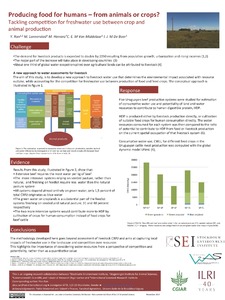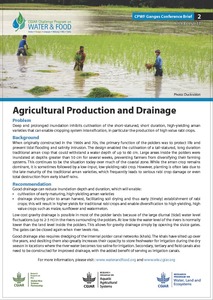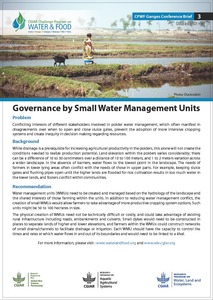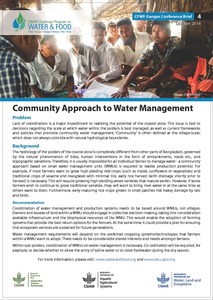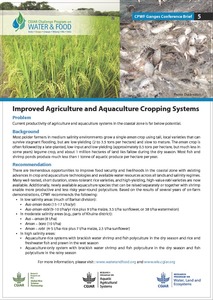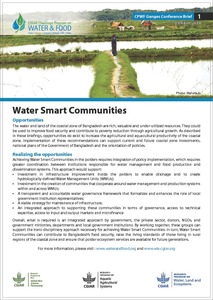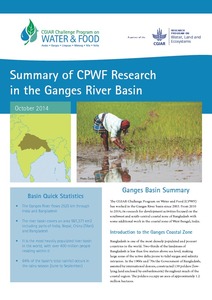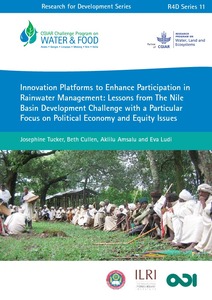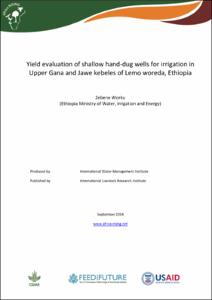Livestock and water
Ganges Coastal Zone Issue Brief 2: Agricultural Production and Drainage
Ganges Coastal Zone Issue Brief 4: Community Approach to Water Management
Ganges Coastal Zone Issue Briefs
A series of five issue briefs based on CPWF research on agricultural and aquacultural production and food security in the Ganges coastal zone. The brief topics are: water smart communities; agricultural production and drainage; governance by small water management units; community approach to water management; and improved agriculture and aquaculture cropping systems.
Summary of CPWF Research in the Ganges River Basin
The CGIAR Challenge Program on Water and Food (CPWF) has worked in the Ganges River basin since 2003. From 2010 to 2014, its research for development activities focused on the southwest and south-central coastal zone of Bangladesh with some additional work in the coastal zone of West Bengal, India. In most polders the primary limiting factors are poor water management due to the lack of systematic operation of sluice gates; lack of separation of lands of varying elevations; and siltation of the irrigation and drainage canals within polders.
Exchanging Experience with Conservation Agriculture : Towards Climate Resilience
This booklet offers advice for
farmers and extension workers interested in using
conservation agriculture techniques to boost crop yields,
soil quality and water retention. These practices represent
some of the many ways we can become more climate smart,
which is essential if we are to sustainably produce more
food on less land to feed our growing planet.
Toward Integrated Water Resources Management in Armenia
The proper management of water resources
plays a key role in the socioeconomic development of
Armenia. On average, Armenia has sufficient water resources.
Taking into account all available water resources in the
country, Armenia has sufficient resources to supply
approximately 3,100 cubic meters per capita per year well
above the typically cited Falkenmark water stress indicator
of 1,700 cubic meters per capita per year. These water
Innovation Platforms to Enhance Participation in Rainwater Management: Lessons from The Nile Basin Development Challenge with a Particular Focus on Political Economy and Equity Issues
This paper draws lessons from two years of work with ‘innovation platforms’ that were established by the Nile Basin Development Challenge (NBDC) program in an attempt to strengthen landscape-level rainwater management in Ethiopia. The NDBC’s work included the use of an innovation fund to support pilot interventions.

